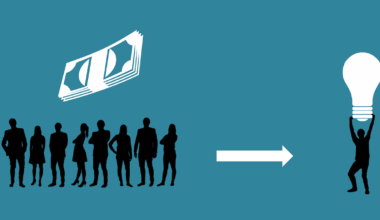Garnishments on Your Paycheck: What to Expect
Garnishments can significantly affect your paycheck, and understanding them is crucial for financial literacy. In essence, a wage garnishment is a court order that allows creditors to take money directly from your paycheck to satisfy a debt. Common types of debts leading to garnishments include unpaid child support, taxes, and student loans. If your wages are garnished, it typically involves a percentage of your disposable income being withheld until the debt is settled. The timing of these deductions varies, and employers are legally obligated to comply with garnishment notices. Employees will receive official notice of any garnishment action, often via mail. It is crucial to keep track of your paycheck stubs to see how these deductions impact your overall earnings. Financial planning becomes essential, especially if you anticipate garnishments due to existing debts. Keeping lines of communication open with creditors can provide potential relief or payment plans that may prevent garnishment altogether. Ultimately, being informed about your garnishment rights can make a significant difference in managing your financial health and well-being.
When it comes to understanding garnishments, knowing the legal limits is paramount. Each state has specific laws governing how much of your paycheck can be garnished. Generally, the maximum amount depends on the type of debt and your income level. For example, in many cases, creditors can only garnish a certain percentage, often 25% of your disposable income. This percentage may be lower for child support or alimony obligations. Understanding how these limits work helps you realize what to expect when garnishments occur. Additionally, some states may offer exemptions that protect part of your income from garnishment. This means that not all income is subject to garnishment, and knowing what is exempt can provide essential financial relief. It is advisable to consult with a financial advisor or legal professional if you face garnishments, as they can offer tailored advice based on your personal circumstances and the law in your state.
The Impact of Garnishments on Your Finances
Garnishments can deeply impact your financial situation, potentially leading to severe consequences if not handled properly. When a portion of your earnings is withheld, budgeting becomes essential to ensure you can cover all essential expenses. As your income is reduced, you might find it challenging to manage your living expenses, bills, and savings goals. Additionally, repeated or high-value garnishments can strain your resources, causing financial stress and anxiety. If you find yourself in this situation, it’s crucial to prioritize your spending. Create a detailed budget that reflects your new financial reality, clearly outlining necessary expenses versus discretionary spending. Financial literacy becomes particularly beneficial here, enabling you to make informed decisions about your money. Moreover, exploring ways to negotiate with creditors may also help you reduce garnishment amounts or settle debts more favorably, ultimately easing your financial burden. Being proactive and seeking help can lead to better financial health and a more stable future.
It’s essential to keep in mind the emotional toll that wage garnishments can take on individuals and families. The financial stress caused by losing a portion of your paycheck is often accompanied by feelings of embarrassment and helplessness. These feelings can affect not just your monetary decisions but your mental well-being. Seeking support from family or friends can provide the emotional fortitude needed to navigate this challenging situation. Additionally, many communities offer financial counseling resources that help individuals understand their options when facing debt and garnishments. Attending workshops or counseling sessions can empower you with information and tools to handle your garnishment effectively. Engaging in discussions about debt management not only helps relieve anxiety but also creates pathways for better financial practices. Gaining knowledge through these resources can ultimately help you regain control of your finances and break the cycle of debt.
Strategies to Prevent Garnishments
Preventing wage garnishments is possible through proactive approaches and responsible financial management. First and foremost, it is essential to stay on top of your financial obligations and payments. If you’re facing difficulty making payments on time, contact your creditors immediately. Openly discussing your financial hardships may lead to a possible renegotiation of your payment schedule or lower payment amounts. Additionally, maintaining an emergency fund can prevent potential financial hardships that could lead to delinquency. Having a buffer of savings allows you to deal with unforeseen expenses without falling behind. Educating yourself about personal finance, budgeting, and avoiding excessive debt helps create a sustainable financial future. Using tools like financial apps or planners can assist in effectively tracking your spending and savings goals, reducing the chances of falling into debt. Lastly, consider seeking professional advice for more tailored strategies suited to your financial situation. Adequate preparation can lead to better financial outcomes, allowing you to maintain a stable life free from the threat of garnishments.
In cases where garnishments are unavoidable, understanding your rights is crucial. Federal and state laws protect certain income types from garnishment. This typically includes Social Security benefits, veterans’ benefits, and public assistance payments. Familiarizing yourself with these protections is essential as it can help safeguard portions of your income against garnishment attempts. Moreover, if you believe that a garnishment has been improperly filed, you may have the right to contest it in court. Gathering documentation and presenting a solid case is vital to defending yourself in these situations. Consulting with a lawyer skilled in debt and bankruptcy law can provide invaluable support in understanding your legal rights and navigating the complexities involved. Be proactive in protecting your income and make sure to utilize every legal option available to you. Staying informed about your rights can empower you in facing garnishments and managing your debt in a more effective manner.
Conclusion
Understanding garnishments on your paycheck is vital for maintaining financial health. Recognizing the factors that lead to garnishments as well as the limits on how much can be taken from your wages is essential knowledge. Engaging in proactive financial management can help prevent garnishments from occurring. Moreover, knowing your legal rights can empower you to take action against improper garnishment notices. The emotional impact of these situations should also not be underestimated, and seeking support in managing stress is just as important as the financial aspects. Overall, becoming financially literate concerning garnishments can lead to making informed decisions that protect your income. By staying informed and implementing effective strategies, you can navigate garnishments confidently and potentially avoid them in the future. As financial challenges evolve, being equipped with knowledge and resources will serve you well in maintaining a stable financial life.
In summary, garnishments can significantly affect your budget and financial planning, emphasizing the need for financial literacy.


